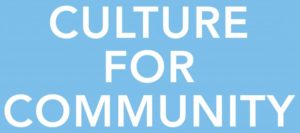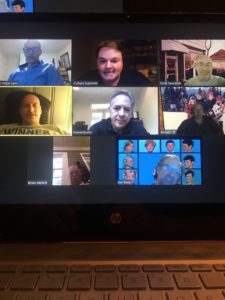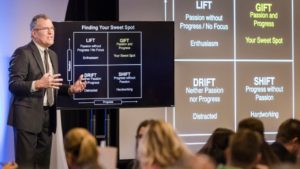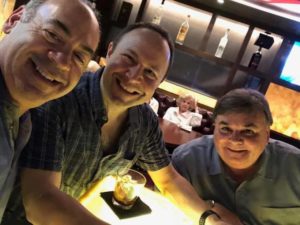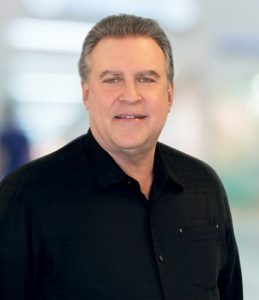
Retired Delray Beach Police Officer Chuck Jeroloman.
Every year, around Christmastime, I get a text from a retired Delray Beach detective.
“It’s time to meet for dinner at Arturo’s Restaurant in Boca Raton.”
And every year, 5 to 7 of us, retired cops, a retired businessman and one washed-up politician (me) get together to catch up. They even let one retired firefighter attend. That’s a big concession for a police officer to make, but in the spirit of the season the invite is issued and usually accepted.
I look forward to this dinner.
In the hustle and bustle of the holiday season, this event stands out for its warmth, its meaning and just the genuine feeling of camaraderie you get when you sit with old friends.
Even though we don’t see each other much, time just melts away when you are with certain people and you fall right back into the comfort of a good friendship.
I really admire and in some ways, I am envious of police officers and firefighters. They share a bond that unites them in a very special way.
To be sure, I’ve been blessed with some really special work and office friendships too. But there’s something different about cops and firefighters. It’s a next level connection.
Working in a newsroom, alongside talented writers, editors and photographers was a gift that I will always miss and remember fondly. My current office culture is special too. I’ve worked with incredible people and I am deeply appreciative of that experience and worry about what others who work remotely are missing.
Yes, I know it’s safer and convenient to work from home. It’s liberating as well because you can live anywhere that has an internet connection. But….
But you don’t get the closeness and the magic of what it’s like to see and interact with people every day.
But as special as my work environments have been—the richness and the bonds between police officers and firefighters is something else entirely. They refer to each other as brothers and sisters and they mean it.
When they lose a brother and a sister, they feel it deep in their souls because they shared so many adventures and stories.
As an old crime reporter, I know not all is bliss. There are cliques, divisions, politics and jealousies in police and fire departments. Combined with the stressful nature of the job, the dangers, the responsibility for life and property etc., you can see why many of the retirees are happy to be doing other things after long careers working long shifts. But…
They do miss it.
And oh, the stories they can tell.
I got to be very close with a generation of police officers and firefighters in Delray Beach. These men and women are remarkable.
Some of the newcomers to our community may not know that Delray was a rough place in the 80s and into the 90s too. Some neighborhoods were open air drug markets and there was a lot of drugs, guns and violence.
Remarkably, I was given carte balance to ride along with detectives, fugitive task forces, field training officers and the well-known and much respected “jump out” crews who tackled street level drug sales day and night.
I was a reporter in those days, and I kept crazy hours—riding in the back seat of police cruisers all night and ending with breakfast at a long gone IHOP on North Federal Highway before rushing back to the newsroom to write it all down before I forgot what happened. Over time, the officers I rode with began to trust me.
I strived to be accurate in my reporting. I tried to convey to readers what was happening on the streets of Delray through the eyes of the men and women tasked with serving and protecting us.
When fights broke out—and they did often—the always outnumbered cops waded into the fray. When someone got hurt, the paramedics were called in and were often pummeled with rocks too.
Delray was a long way from the posh, hip and trendy location it has become today. Commissioners didn’t have the luxury of arguing over sea grapes back then. In those days, it was about whether the city would ever turn it around.
I credit our public safety departments with making Delray safe for investment. They are the unsung heroes of Delray’s revitalization because if you don’t feel safe you can’t build community, you can’t attract residents, businesses, and tourists. You have nothing without public safety. Nothing.
So when I see gadflies whining about the costs of these departments I shrug. They just don’t know. Providing top-notch police and fire services is expensive. But it’s more expensive not to do so.
When I was elected to the City Commission in 2000, that was the one subject I felt very secure of in terms of my knowledge. These officers, detectives, firefighters and paramedics took me to school, and I knew that my job as an elected official was to support their efforts which were bearing fruit. Crime rates went down. The relationship between officers and the community improved; trust was built through a deep and sincere commitment to community-oriented policing. On the fire side, insurance rates went down and we heard story after story of lives being saved because of the efforts of our paramedics.
During this era, Delray Police and Fire built a robust volunteer network with citizens rolling up their sleeves to make our community safer.
It worked.
It all worked.
Along the way, I became friendly with that detective who organizes the annual Christmas dinner. His name is Chuck Jeroloman. We had New York roots and a mutual passion for baseball in common and we became quick friends.
I first met Chuck when he was on that jump out crew, known officially as the Tact Team. He was a big, strong, charismatic guy—kind of larger than life. But his biggest strength was his relationship skills. He knew how to connect with people.
He became a detective, an expert in Crime Prevention Through Environmental Design, a union leader and later a very knowledgeable and effective member of the Police and Fire Pension Board. He also served on the SWAT team and was involved in the department’s anti-terrorism efforts post 9/11. He spent 28 years in law enforcement, 23 of those years serving our city.
Chuck loved Delray and he was always quick to share what he had learned at a conference or through hard won experience. He also has a great sense of humor in a job where that comes in handy.
When he retired, he moved to Alabama but got a job with a law firm that advises police and fire pension funds. He has been doing that job for a long time now building relationships throughout the country with clients.
He’s going to retire from that position in the New Year to spend time with family. That makes me happy. Despite his latest transition, we are resolved to keeping this dinner an annual tradition.
This year, Chuck brought his son, Brian, to the dinner. And a new generation was introduced to the great stories and warehouse of knowledge that exists when you sit with men like Tom Judge (Delray PD retired) and Perry Don Francisco (former owner of Boston’s on the Beach and co-founder of Delray Citizens for Delray Police.)
Brian is a former UF baseball star who played 11 seasons of professional baseball for the likes of the Nationals, Blue Jays and Pirates. He currently scouts for the Yankees. He has some amazing stories himself and so the circle continues.
The next morning, still flying high from our great dinner conversation, I got a text from another Delray retiree.
“Hey,” I wrote back. “I had dinner with Chuck and TJ last night.”
“Oh man, I love those guys,” my friend wrote back. “Chuck’s wife delivered all of my children (she’s a nurse).”
That’s a link I didn’t know about. Another tie that bonds these people together.
In the history of Delray, there are a lot of men and women who have worked for our city that have quietly done an amazing job to advance this community in ways large and small.
They don’t get a whole lot of recognition, but they are all vitally important.
They are all a big part of the tapestry that makes this a place we can call home.
Many of these people move on after serving—but their hearts remain here alongside their life’s work.
I feel such a debt to these people. I treasure them.
They are invaluable.
They are cherished by those of us who know what it takes to build something special.
